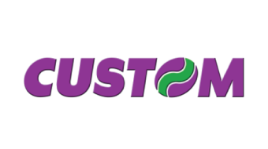Vehicle-mounted computers
Vehicle-mounted computers are specialized computing systems designed to be installed directly in vehicles such as forklifts, trucks, delivery vans, and industrial equipment. These computers are engineered to withstand the rigors of mobile environments, making them ideal for applications in transportation, logistics, warehousing, and manufacturing industries. Here's an overview of the features, applications, and benefits of vehicle-mounted computers:
Key Features
Rugged Design: Vehicle-mounted computers are built to endure tough conditions, including shock, vibration, extreme temperatures, and exposure to dust and water. They often meet industrial and military durability standards.
Touchscreen Interface: These computers typically feature touchscreen interfaces that are easy to operate, even by operators wearing gloves. Screens are designed to be readable in various lighting conditions, including direct sunlight.
Connectivity Options: Enhanced connectivity features such as Wi-Fi, Bluetooth, cellular networks (LTE), and GPS are common. These ensure constant communication with central systems for real-time data exchange.
Mounting Options: They come with flexible mounting options to fit different types of vehicles and spaces, ensuring that the device is secure and the display is easily accessible to the vehicle operator.
Power Management: Advanced power management helps maintain battery life for continuous use throughout long working hours, often integrating with the vehicle’s power system to manage charging dynamically.
Customizable Software and Hardware: Many vehicle-mounted computers offer customizable options for hardware (like scanners and cameras) and software to meet specific business needs, including integration with enterprise resource planning (ERP) systems and warehouse management systems (WMS).
Applications
- Logistics and Transportation: For managing delivery routes, tracking vehicles, and optimizing logistics operations.
- Warehousing: Used in forklifts for real-time inventory management, locating items within the warehouse, and updating inventory systems.
- Field Service Management: Helps service technicians access work orders, manage parts inventory, and update job statuses in real time.
- Manufacturing: Tracks production data, manages supply chain logistics, and monitors equipment performance.
Benefits
- Increased Efficiency: Enables real-time data collection and communication, reducing delays in information relay and enhancing decision-making processes.
- Enhanced Productivity: Streamlines operations such as inventory tracking, order picking, and route management, directly impacting productivity positively.
- Error Reduction: Reduces human error through automation of data entry and by providing operators with real-time access to accurate data.
- Improved Service Delivery: In service industries, these computers help manage schedules and routes efficiently, improving response times and customer satisfaction.
Overall, vehicle-mounted computers are vital tools for businesses looking to optimize operations in environments where mobility is key. They provide critical support for managing mobile operations seamlessly, ensuring data is always accessible, and operations are always connected, regardless of the physical location of the vehicle or equipment.






















































